Everything You Need To Know Before Visiting Morocco
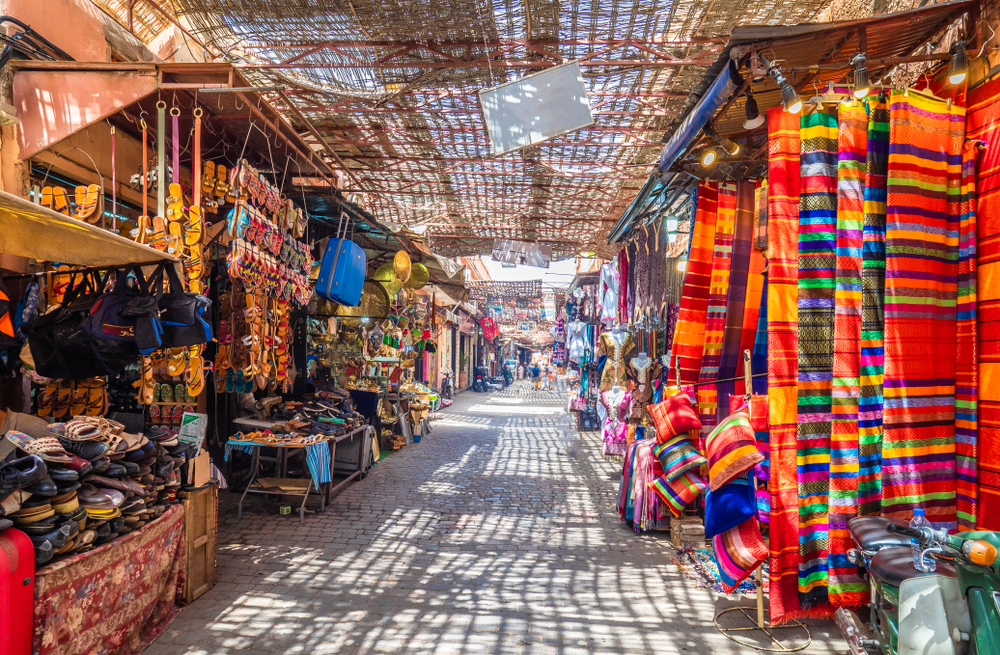
Welcome, fellow adventurers, to a land where time seems to stand still and where every corner reveals a new facet of wonder. I’m delighted to be your guide on this virtual journey through Morocco, a place that has captured my heart as a Moroccan traveler.
Morocco, with its ancient medinas, Sahara dunes, snow-capped peaks, and bustling souks, is a country that effortlessly marries tradition and modernity. It’s a place where the aroma of mint tea mingles with the vibrant hues of textiles in the markets, where the call to prayer echoes through historic cities, and where the desert sky dazzles with a blanket of stars.
But beyond its mesmerizing beauty, Morocco is a treasure trove of experiences waiting to be uncovered. It’s a place where the spirit of hospitality welcomes travelers like old friends, where nomadic traditions endure, and where you can lose yourself in the tales of storytellers under the shade of ancient palms.
So, embark with me on this adventure, as we navigate the intricate labyrinth of Morocco’s culture, history, and landscapes. Whether you’re a seasoned globetrotter or a first-time explorer, this comprehensive guide is designed to help you plan an unforgettable Moroccan odyssey.
From practical tips on visas and travel essentials to deep dives into the heart of Moroccan cuisine and etiquette, we’ve got it all covered. Get ready to immerse yourself in the magic of Morocco, where every step is a dance between past and present, and every encounter is an invitation to embrace the unknown.
Are you ready to journey with us through Morocco’s enchanting tapestry? Let’s begin!
1. Entry Requirements and Visa
Before you embark on your Moroccan adventure, it’s crucial to check the entry requirements for your nationality. Many travelers can enter Morocco visa-free for stays of up to 90 days, while others may require a visa. You can verify the specific visa requirements at the nearest Moroccan embassy or consulate in your country.
Ensure that your passport is valid for at least six months beyond your planned departure date. It’s also a good practice to make photocopies of your passport and store them separately from the original document, along with digital copies stored securely online.
Check the List of countries whose citizens are exempted from entry visa into Morocco.
2. Currency and Money Matters
The currency used in Morocco is the Moroccan Dirham (MAD). It’s advisable to exchange some currency upon arrival at the airport or a bank. While credit and debit cards are widely accepted in urban areas, cash is preferred in many smaller towns and markets. It’s a good idea to carry a mix of cash and cards for convenience.
ATMs are readily available in major cities, so you can withdraw Dirhams as needed. Be aware of any foreign transaction fees your bank may charge and inform your bank of your travel plans to avoid card issues abroad.
Each airport is equipped with official currency exchange services, so you can rest assured when it comes to exchanging your currency at the airport.
3. Language
The official languages of Morocco are Arabic and Amazigh (Berber). However, French is also widely spoken, particularly in urban areas and among the educated population. English is becoming more common, especially in the tourism industry, but it’s helpful to learn a few basic Arabic or French phrases to enhance your travel experience and interact with locals.
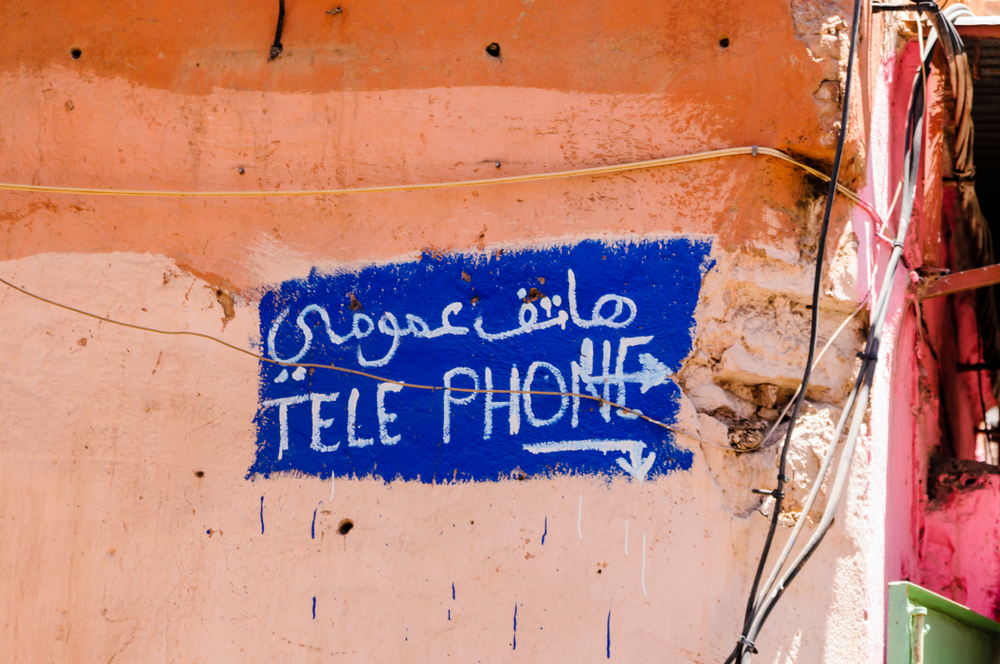
Here is a post about Moroccan languages, where I have included everything you need to know. I will keep updating it every time 🙂
4. Dress Code and Cultural Etiquette
Morocco is known for its open-mindedness, and clothing choices are generally respected throughout the country. While Western clothing is widely accepted in cities like Marrakech and Casablanca, it’s appreciated if visitors, regardless of gender, opt for modest attire when visiting religious sites or more traditional communities.
Many Moroccan women wear a wide range of clothing styles, from Western fashion to traditional attire, without judgment. Carrying a scarf or shawl can be practical, but it’s often not required. The key is to feel comfortable while being respectful of the local culture.
5. Respect for Religion and Customs
Morocco, as a predominantly Muslim country, warmly welcomes non-Muslim visitors to explore its religious sites and mosques, provided they respect the customs and rules of the Islamic faith.
During Ramadan, the holy month of fasting, it’s especially appreciated when visitors observe the local tradition of refraining from eating, drinking, or smoking in public during daylight hours, out of respect for those who are observing this religious practice. This respectful approach helps foster positive interactions and a deeper cultural understanding among all visitors.
6. Bargaining and Haggling
Bargaining in Moroccan markets, known as “souks,” is a cultural ritual that adds a layer of excitement and connection to the shopping experience. Visitors and locals engage in spirited negotiations, showcasing their haggling skills while forging bonds. This age-old tradition isn’t just about securing a deal; it’s an opportunity to immerse oneself in Moroccan culture, where respect, patience, and friendly banter play pivotal roles. Bargaining is an expected practice, a chance to explore the art of negotiation, and a unique souvenir of your time in Morocco.
7. Transportation
a. Taxis
In Moroccan cities, taxis are a convenient and affordable mode of transportation. There are two types: petit taxis (small taxis) and grand taxis (large taxis). Petit taxis are usually metered, while grand taxis have fixed routes and fares.
Ensure that the taxi driver uses the meter or agrees on a fare before starting your journey. It’s also advisable to carry small change for taxi fares.
b. Trains and Buses
Morocco has an extensive train and bus network, making it relatively easy to travel between cities. Trains are a comfortable option for longer distances, while buses are more affordable and connect to smaller towns.
Booking tickets in advance for popular routes is recommended, especially during peak travel seasons. Trains and buses are known for punctuality, so arrive at the station a little early to avoid missing your departure.
c. Domestic Flights
For long-distance travel within Morocco, consider domestic flights. Royal Air Maroc is the national carrier, offering flights to major cities like Casablanca, Marrakech, and Agadir. Domestic flights can save you time and are relatively affordable if booked in advance.
8. Accommodation
Morocco offers a wide range of accommodation options to suit every budget and preference. From luxury hotels and boutique riads to budget-friendly hostels and guesthouses, you’ll find plenty of choices.

Riads, traditional Moroccan guesthouses, are a unique and culturally immersive option. Staying in a riad allows you to experience Moroccan hospitality and architecture firsthand. Be sure to book your accommodation well in advance, especially during peak tourist seasons.
9. Food and Hygiene
Indulge in the delightful flavors of Moroccan cuisine, a true paradise for food enthusiasts. The dishes on offer, such as aromatic tagines, fluffy couscous, and delectable Moroccan pastries, are a celebration of taste that will leave your palate enchanted. As you venture into local restaurants and eateries, take a moment to appreciate the cleanliness and inviting ambiance of well-maintained establishments.
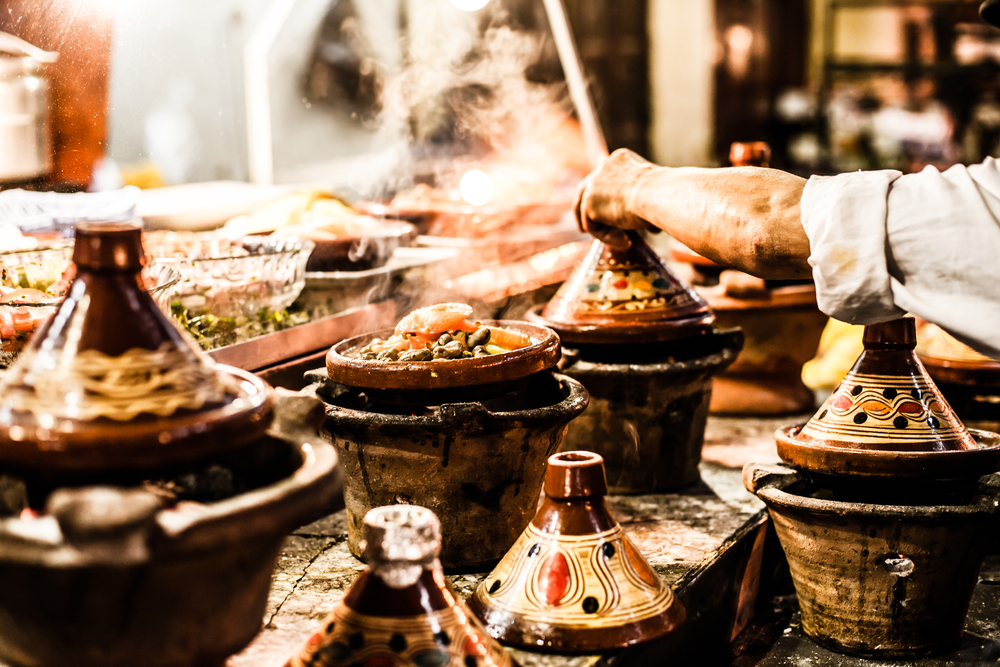
To ensure a worry-free dining experience, consider sipping on refreshing bottled water as a precaution against any potential stomach discomfort. Simply check that the seal on the water bottle is intact before quenching your thirst. Morocco’s culinary treasures await, promising not only a journey for your taste buds but also a delightful exploration of culture through food.
10. Getting Around the Medina
Many Moroccan cities have historic medinas (old towns) with narrow, winding streets. These medinas can be charming to explore but also confusing to navigate. To avoid getting lost, consider these tips:
- Use landmarks as reference points.
- Download offline maps or use GPS on your smartphone.
- Ask locals for directions when needed.
- Hire a local guide for a few hours to show you around.
11. Local Customs and Greetings
Moroccans are known for their warm hospitality. When interacting with locals, remember these customs:
- Greet with a handshake and a polite “Salam” (peace).
- Accept offers of tea or coffee as a sign of hospitality.
- When taking photos of people, ask for permission first, especially in rural areas.
- Be mindful of cultural sensitivities, such as not pointing your feet at people.
12. Frequently Asked Questions (FAQ)
Q1: Is Morocco safe for travelers?
A1: Morocco is generally safe for travelers. However, like any destination, it’s essential to exercise caution and be aware of your surroundings. Stick to well-traveled areas, follow local customs, and keep an eye on your belongings.
Q2: What is the best time to visit Morocco?
A2: The best time to visit Morocco depends on your preferences. Spring (March to May) and autumn (September to November) are ideal for pleasant weather. Summers can be hot, especially in inland areas, while winters are cooler, with snow in the mountains.
Q3: What should I wear in Morocco?
A3: While Morocco is diverse and relatively liberal, it’s respectful to dress modestly, especially in more conservative areas. In cities like Marrakech and Casablanca, you can wear Western clothing, but when visiting religious sites, it’s advisable to cover shoulders and knees.
Q4: Do I need a visa to visit Morocco?
A4: Visa requirements vary depending on your nationality. Many countries have visa-free access for short stays. Check with the Moroccan embassy or consulate in your country for specific requirements.
Q5: What are some unique souvenirs to buy in Morocco?
A5: Morocco offers a range of unique souvenirs, including handmade carpets, traditional pottery, Moroccan spices, leather goods, and intricate lanterns. The souks (markets) are excellent places to shop for these items.
Q6: Can I drink tap water in Morocco?
A6: It’s generally advisable to drink bottled water in Morocco to avoid stomach discomfort. However, in some upscale restaurants and hotels, tap water is safe for drinking.
Conclusion
As we conclude our Moroccan adventure, we do so with deep gratitude for the memories we’ve created and the experiences we’ve cherished. Morocco, with its myriad wonders and cultural riches, has left an indelible mark on our hearts.
From the bustling souks of Marrakech to the tranquil oases of the Sahara, Morocco’s diverse landscapes and warm hospitality have welcomed us at every turn. As we bid adieu, we carry with us the vibrant colors of its markets, the echoes of its history, and the flavors of its cuisine.
But, remember, Morocco’s magic endures long after departure. It’s a place that encourages us to embrace diversity, relish each moment, and treasure the connections we make with others. As you continue your travels, whether within Morocco or beyond, may the spirit of this enchanting country stay with you, guiding you to new adventures and enriching your journey.
Thank you for sharing in our Moroccan escapade, and until we meet again, as they say in Morocco, “Beslama” (Goodbye), but not farewell.
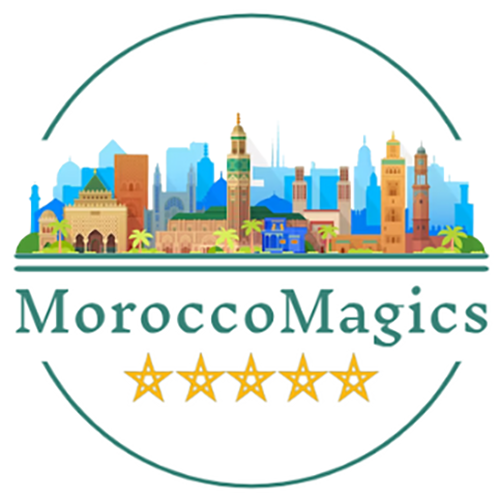
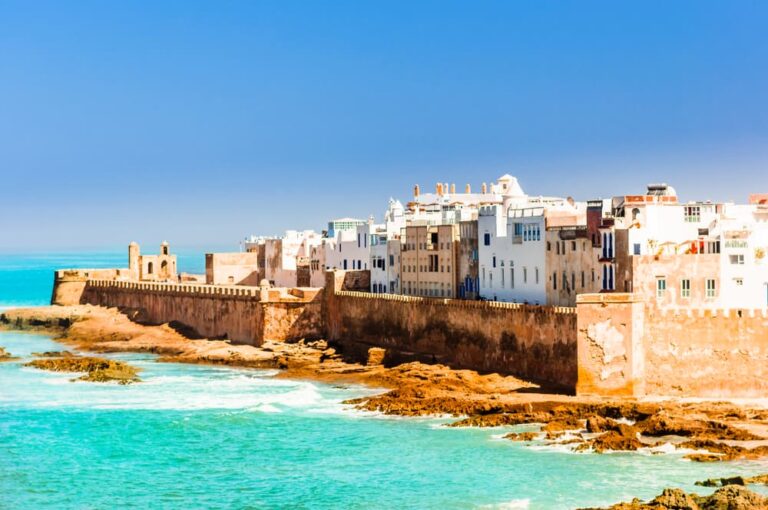
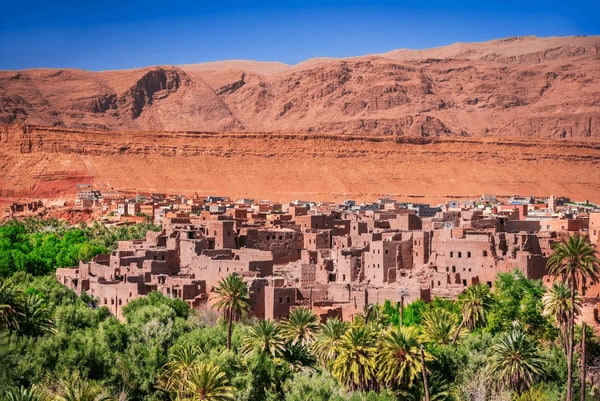
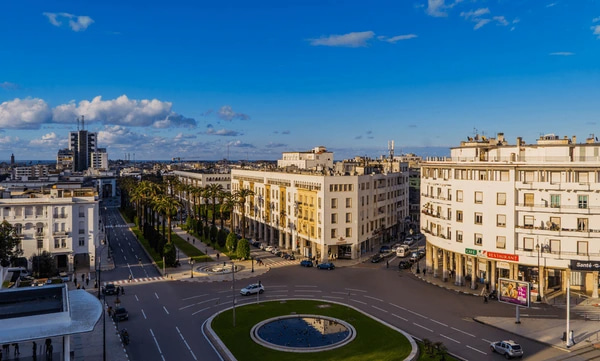
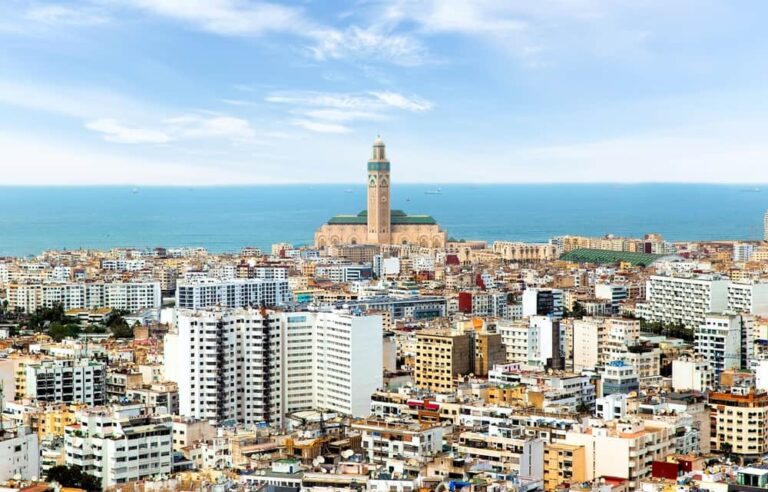
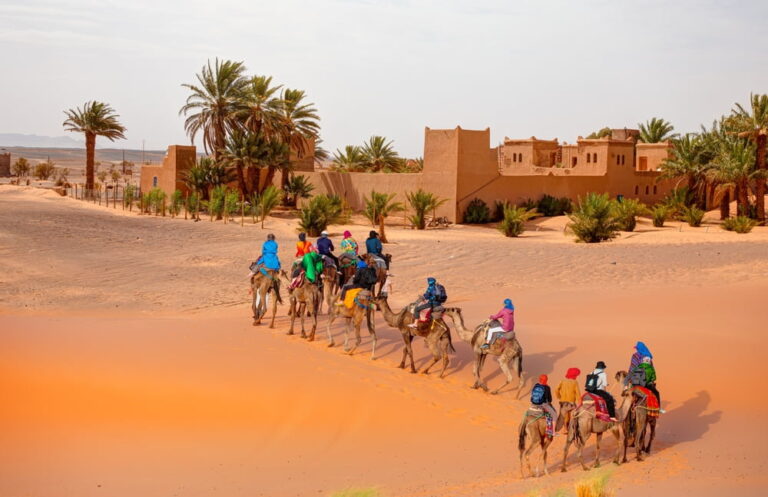
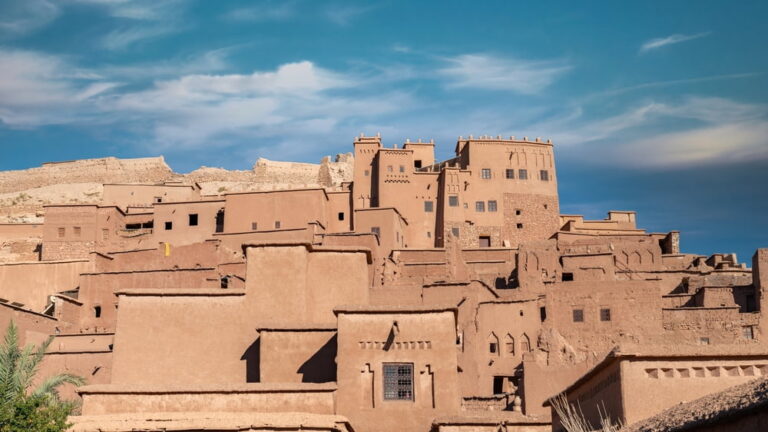
2 Comments